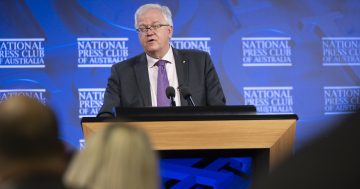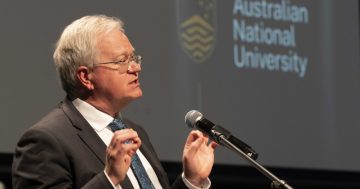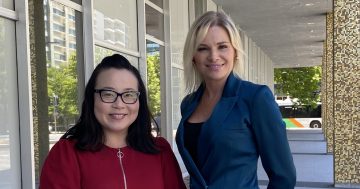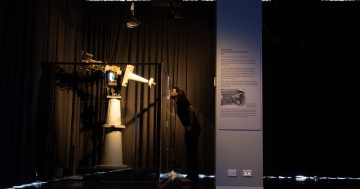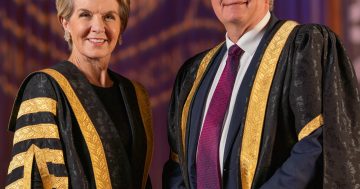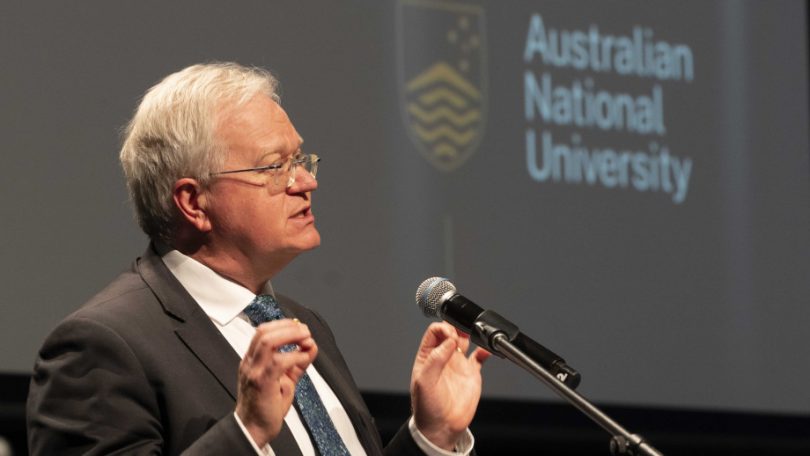
ANU Vice-Chancellor Brian Schmidt: Australia needs an apolitical system to allocate research funding. Photo: ANU.
Australia’s universities face an existential threat from the spectre of political interference from both major parties, ANU Vice-Chancellor Professor Brian Schmidt has warned in his 2022 State of the University address.
Professor Schmidt repeated his criticism of Education Minister Alan Tudge’s decision to interfere in the awarding of Australian Research Council grants before Christmas, and called for an overhaul of research funding in Australia.
“I was dismayed, and I am not the only one,” he said during his address on Monday, 7 February.
“My strong view, a view held by many university leaders, whether they say it out loud or not, is Australia needs an apolitical system to allocate research funding like all other countries similar to us have, and a review of the Australian Research Council and its governance.”
Professor Schmidt said this political interference, which had bipartisan support in this country, could corrupt knowledge and slow down its creation.
“Of the four known occurrences of political interference, three have occurred in the last three years – and as things stand, both major parties agree it is appropriate for the minister to wield this power,” he said.
“I see this as an existential threat to Australian universities.”
Professor Schmidt said academic autonomy and freedom allowed universities to pursue ideas across a broad spectrum of possibilities, and not just the known or what was thought relevant or acceptable at the time.
“After all, what would our society be like when the study of history, politics and literature has to reflect the views of the minister of the day?” he asked.
“Where would we be if we hadn’t been working on climate mitigation strategies for the past 30 years while the merchants of doubt sowed their seeds?
“What if we hadn’t invested in understanding the foundational properties of messenger RNA when it seemed just a dalliance with no practical benefits?”
Professor Schmidt also placed a caveat on the drive to turn research into dollars.
“We heard last week how much the Morrison Government values research translation and commercialisation, with a $1.6 billion Economic Accelerator program,” he said.
“The good news for ANU is, as you can see, we’re pretty good at this stuff. But I would also say commercialising research can only occur when we have the bedrock of basic research to underpin it.
“Every discovery worth money in the marketplace builds on decades of pushing back the frontiers of knowledge.”
Referring to controversial cuts to ANU programs and jobs, Professor Schmidt said the underlying state of the university was strong after the toughest two years of sacrifices in its 75 years of existence.
But filling vacancies and more outreach would mean ANU would likely run deficits in 2022 and 2023 after last year’s surplus.
“We will need to take on debt over the coming years, but I remain confident we will not have to make any more cuts. We are leaner, but not meaner.”












